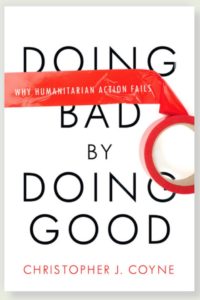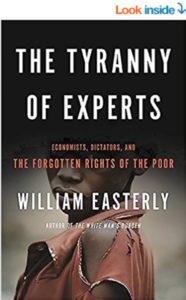Reducing U.S. Military Commitments
The Stoa debate league has chosen its 2020-21 policy debate topic: Resolved: The USFG should considerably decrease its military commitments. US military commitments around the world (Montgomery Herald, July 9, 2018) reviews the scope of U.S. military commitments, then notes:
Most troops are not directly engaged in combat; and often they are engaged in time-consuming, nation-building situations, trying to win over locals, build infrastructure and reform governments….We also have forces in Africa in Djibouti, Somalia and Cameroon. In the Middle East, we are deeply implicated in Afghanistan, Iraq, Syria, Yemen and Pakistan.
U.S. Presidents during campaigns usually oppose nation-building because such projects are expensive and tend not to be effective. But during each administration nation-building projects continue. Administration after administration the U.S. has been “nation-building” in Afghanistan over nearly twenty years. Stoa debaters could call for decreasing or ending nation building. Helping a country defend itself need not include military spending to “win over locals, build infrastructure and reform governments.”
The American Enterprise Institute’s Jessica Trisko Darden, in Youth radicalization is rising, and the international community is unprepared (AEIdeas, June 11, 2018), first reviews the ways children and mothers have been manipulated and used in terrorist attacks, and then notes:
At the same time, a growing body of research suggests some US-funded development programs are actually increasing support for violent extremism amongst at-risk youth rather than decreasing it. A UN Development Programme study found that more than 50% of the surveyed members of violent extremist groups in Africa were introduced to the group by a friend. Another 8% were introduced by a family member. Yet, the United States has so far tried to stem violent extremism among youth abroad by offering graffiti art workshops, soccer tournaments, and poetry slams. [links in original text]
Keeping young people busy is not an effective way to fight terrorism….
The article link from US-funded programs “increasing support for violent extremism” goes to COMPOUNDING VIOLENT EXTREMISM? WHEN EFFORTS TO PREVENT VIOLENCE BACKFIRE (War on the Rocks, June 6, 2018), also by Darden, with more detail on reasons to be skeptical of anti-terrorism programs run by State Department and USAID: “non-military tools to complement its military efforts”:
Despite their good intentions, these programs are riddled with problems. In some cases, they do not do enough to ensure that participants are actually at risk of radicalization, while other programs foster wasteful spending on activities with no proven link to the problem. The result is that USAID programs may be exacerbating the very problem they are trying to solve by increasing support for violence in places where extremist groups are operating.
This particular project was State Department and USAID, not the U.S. military directly:
…part of a joint strategy with the State Department, the U.S. Agency for International Development (USAID) is funding development programs designed to undermine the rise and expansion of violent extremist activity…
Doug Bandow writes on the ongoing U.S. military commitments in Afghanistan: The Nation-Building Experiment That Failed: Time For U.S. To Leave Afghanistan (Forbes, March 1, 2017)
Recent policy debate topics are relevant. NCFCA, and NSDA debate topics were on U.S. foreign policy and aid programs:
Stoa policy topic: Resolved: The United States federal government should substantially reform its foreign aid.
NCFCA policy topic: Resolved: The USFG should substantially reform its foreign policy regarding international terrorism.
It might seem a stretch from foreign aid to reduce terrorism to United States and European Union refugee crises, but development economist William Easterly explains in This common argument for U.S. foreign aid is actually quite xenophobic, (Washington Post, March 31, 2017):
The counter-terrorism argument for foreign aid after 9/11 indeed succeeded for a long time at increasing and then sustaining the U.S. foreign aid budget. However, the continued reliance on this national security argument…has now left aid extremely vulnerable to deep cuts, even while that argument has generated collateral damage in other areas. First, the link from aid to counter-terrorism never had any evidence behind it. As it became ever less plausible as terrorism continued, it set up aid for a fall. Second, the argument falsely generalized that the nationals of the poorest countries…were prone to terrorism, which has at least in small part contributed to today’s toxic xenophobia toward refugees and migrants from those countries.
Easterly, author of The Tyranny of Experts, quotes President George W. Bush’s post 9/11 speech on increasing foreign aid to deal with terrorism around the world, so emphasizing the central national defense claim that more foreign aid will lead to a safer America:
We must include every African, every Asian, every Latin American, every Muslim, in an expanding circle of development. … The United States will lead by example. We will increase our development assistance by $5 billion … As the civilized world [emphasis added] mobilizes against the forces of terror, we must also embrace the forces of good. By offering hope where there is none, by relieving suffering and hunger where there is too much, we will make the world not only safer, but better.
If U.S. foreign policy via overseas military operations and commitments, and nation-building projects had been able to make poor countries safer and less poor since the 9/11 attacks, then maybe the two trillion dollars borrowed could be justified. But most countries on the receiving end of U.S. military interventions and development aid are neither safer nor less poor.
Easterly argues:
Even if there had been a link from poverty to terrorism, the “aid as counter-terrorism” argument also required the assumption that aid has a dramatic effect on the poverty of entire aid-receiving nations. Today’s proponents of aid no longer make the grandiose claims of aid lifting whole societies out of poverty. They are more likely to cite the successes of more narrow programs with more limited numbers of beneficiaries, as {Bill] Gates does with his (correct) celebration of efforts against Ebola and AIDS.
Jessica Trisko Darden’s Compounding Violent Extremism (cited above) looks at a series of U.S. anti-terrorism programs that have had at best mixed results. Here are some excerpts:
Recent research and a thorough review of USAID program evaluations suggest that some development programs are shifting local attitudes toward increased support for terrorism. …
How can we explain this increased support for violent extremism? Social psychology has some answers. For decades, research has shown that attacks on strongly held beliefs tend to make these beliefs more resistant to counterarguments. Efforts to undermine support for terrorism may actually reinforce existing beliefs. …
There are some simple steps that can be taken to ensure that programs intended to mitigate violent extremism do not contribute to the problem. Improving targeting of both resources and programs would be a good place to start. Given the clear potential for negative consequences, programs should be as narrow in scope as possible. …
There are deep institutional problems with foreign countries funding programs to “change hearts and minds,” just as there are with governments providing humanitarian aid after disasters caused by wars, earthquakes, hurricanes, or tsunamis.
Doing Bad by Doing Good: Why Humanitarian Action Fails (Stanford University Press, 2013), looks at the recent history of disasters and failed responses. Economist Chris Coyne:
…considers a wide range of interventions. He explains why the U.S. government was ineffective following Hurricane Katrina, why the international humanitarian push to remove Muammar Gaddafi in Libya may very well end up causing more problems than prosperity, and why decades of efforts to respond to crises and foster development around the world have resulted in repeated failures.
In place of the dominant approach to state-led humanitarian action, this book offers a bold alternative, focused on establishing an environment of economic freedom. If we are willing to experiment with aid—asking questions about how to foster development as a process of societal discovery, or how else we might engage the private sector, for instance—we increase the range of alternatives to help people and empower them to improve their communities. Anyone concerned with and dedicated to alleviating human suffering in the short term or for the long haul, from policymakers and activists to scholars, will find this book to be an insightful and provocative reframing of humanitarian action.
Previous posts have highlighted research and online videos by Peruvian economist Hernando de Soto. DeSoto and his research team document that everyday people can’t get permits to start businesses nor title to the property they informally own. Institutional reforms are needed across the Middle East and North Africa, as well as other developing countries. See, for example: Encourage Economic Freedom or Democracy for the Middle East? Also, online is the PBS documentary: Unlikely Heroes of the Arab Spring. Addressing these institutional weaknesses would open economies and create local jobs and wealth by reducing regulatory restrictions faced by everyday entrepreneurs trying to make a living.
From Peru to Persia, Economic Freedoms for Everyday People (Economic Thinking, Updated October 27, 2016) explains:
DeSoto says “the West must learn a simple lesson: Economic hope is the only way to win the battle for the constituencies on which terrorist groups feed.” Today many seem to believe such economic reforms aren’t possible in Syria, Egypt, Iraq, and Iran. Many similarly believed Latin American cultures were somehow not ready or open to economic and legal reforms. DeSoto responds:
“The conventional wisdom proved to be wrong, however. Reforms in Peru gave indigenous entrepreneurs and farmers control over their assets and a new, more accessible legal framework in which to run businesses, make contracts and borrow—spurring an unprecedented rise in living standards.”
The post links to useful background articles for students researching international terrorism, foreign aid, and refugees (immigration), including Megan McArdle’s March, 2011 Atlantic article: When Freedom Is Bad for Business: How the U.S. invasion made Iraq’s economy worse, not better.
For the current Stoa topic calling for reducing U.S. military commitments, understanding the policies that promote peace and prosperity can help redirect scarce resources toward reforms that develop trade and investment. The Frasier Institute’s Economic Freedom of the Arab World: 2019 Annual Report (December 18, 2019). Terrorist and anti-western ideologies lose their appeal as frustrated young people gain opportunities for employment and advancement:
Expanding economic freedom would also combat corruption. If the road to opportunity is open, no one can demand a bribe for entrance to that road. The Arab Spring was triggered by economic as much as by political reasons. The demonstrations across the Arab world were fueled especially by frustrated youth unable to find suitable employment or launch their own enterprises. The privileged and powerful have the connections and influence to navigate the complicated seas of red tape and favoritism to establish their own businesses and land the best jobs. But, if these opportunities were open to all, an economic miracle would unfold in the Arab World.

The Frasier Institute’s broader study, Economic Freedom of the World: 2019 Annual Report (September 12, 2019) is also a valuable resource for Stoa debaters. For any country involving U.S. military commitments, this study overs an overview with measure of economic freedom across size of government, legal systems and property rights, sound money, trade freedom, and regulations. Wherever these measures fall short, poverty and frustration create risks for local and international violence.

